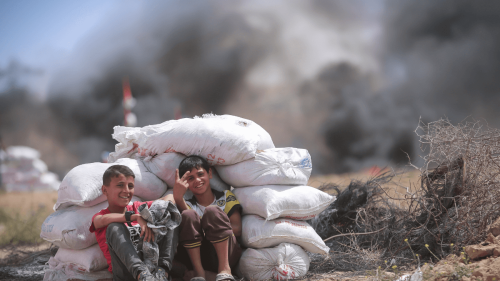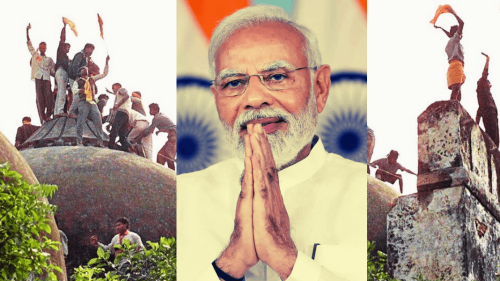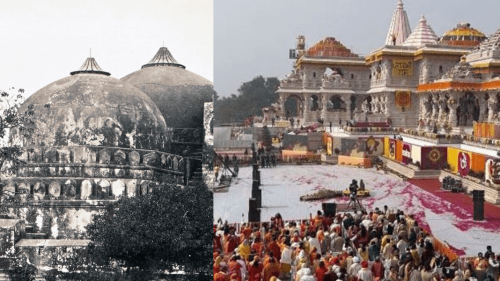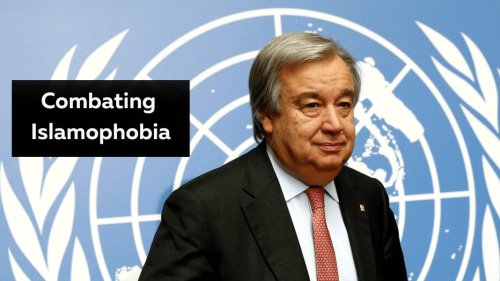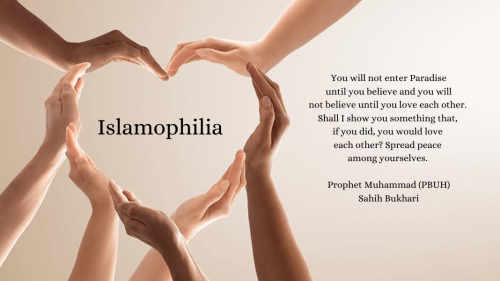India: Modi Regime's Crackdown to Silence Activists
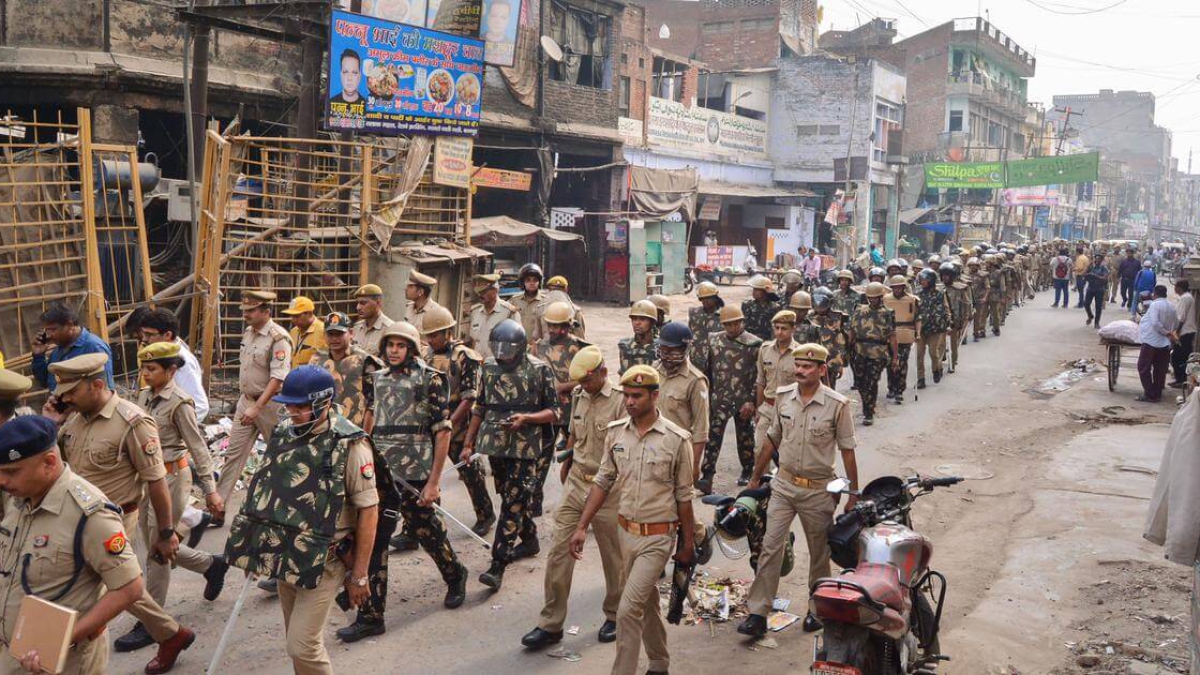
Close on the heels of Supreme Court’s dismissal of an appeal against the exoneration of Prime Minister Narendra Modi in the 2002 anti-Muslim pogrom in India’s western state of Gujarat, country’s right-wing Hindu party government has started a crackdown against human rights activists who helped Muslim victims and their kin in the years long legal battle against the rioters.
The arrest and subsequent remand in police custody of rights activist Teesta Setalvad and former senior police officer R B Sreekumar for ‘allegedly falsifying evidence’ in the Gujarat communal riot case is nothing but a revenge for seeking justice.
While dismissing the appeal filed by Zakia Jafri, the widow of former Congress parliamentarian Ihsan Jafri who was brutally burnt to death by a Hindu mob during the riot, the Supreme court had condemned those who have the audacity to question officials and seek them to be put in the dock.
The apex court also described the long battle for justice fought in the courts as a nefarious design to keep the pot boiling for some ulterior motive and wants them to be punished.
Immediately after the court pronounced the verdict in favor of Narendra Modi on June 24, his close ally and Interior Minister Amit Shah, who was also an accused in a fake encounter case, had come out against Teesta saying that the judgment clearly mentions the name of Teesta and her NGO. Hours later Teesta was arrested from her home in Mumbai.
Teesta, a civil rights activist and journalist is the secretary of Citizens for Justice and Peace (CJP), an organization formed to advocate for the victims of 2002 Gujarat riots.
Besides her, Sreekumar, former Director-General of Police of Gujarat and Sanjiv Bhatt, another former police officer, were instrumental in giving evidence about Modi's role in the riot when he was the chief minister of the state. Bhatt is currently in jail serving life imprisonment in connection with a custodial death case after being targeted for speaking against Narendra Modi.
There are many evidences that connect Modi's role in the anti-Muslim carnage.
Babu Bajrangi, a Hindu militant who was sentenced for his role in the massacre, had revealed the involvement of the police and the chief minister at that time, Narendra Modi, during a sting operation by journalist Ashish Khetan.
The tapes provide incriminating evidence of Modi’s involvement, encouragement to the persons who committed these atrocities and subsequent attempts to thwart the investigations and stifle the justice system.
The arrest of those who seek to pursue the cause of justice followed by the Supreme Court’s 'revenge call' is a clear manifestation that India’s judiciary, the last resort of Muslims and other marginalized communities, is completely leaning towards the ruling Hindutva forces.
India has experienced scores of communal violence since its independence in 1947. Had it not been the support given by the human rights activists and organizations, the victims would not even have thought of standing against the might of a vindictive state.
This is why the unprecedented pro-Hindutva activism from the judiciary has put all human rights activists in danger. International rights groups and the United Nations Special Rapporteur on Human Rights have come out against this blatant misuse of judiciary and called for the immediate release of Teesta and Sreekumar.
“Teesta is a strong voice against hatred and discrimination,” Mary Lawlor, the United Nations’ Special Rapporteur on Human Rights Defenders, said on Twitter. “Defending human rights is not a crime. I call for her release and an end to persecution by Indian state.”
This is not the first time the judiciary is blatantly showing its pro-Hindutva stand. Twenty-seven years after the demolition of
15th century Babri mosque in Ayodhya by Hindutva forces affiliated to the Prime Minister Modi, the Supreme Court in a verdict on November 9, 2019, gave the land where the mosque stood, to Hindus citing that millions belong to that religion believe the mosque was built at the birthplace of Ram, one of their most revered deities.
The Modi government nominated the Chief Justice Ranjan Gogoi, who pronounced the verdict, to the Upper House of the parliament after his retirement as quid pro quo for the favourable verdict in the Babri case.
Jail for rights activists
More than two dozen human rights defenders, majority of them university students, have been languishing in Indian jails since February 2020 for raising their voices against Modi regime's discriminatory Citizenship Law and other anti-Muslim policies.
Many of them had multiple First Information Reports (FIR) registered against them and were charged with serious offenses, including the draconian Unlawful Activities Prevention Act (UAPA) .
Of those arrested, only five – Natasha Narwal, Devangana Kalita, Safoora Zargar, Asif Iqbal Tanha, and Muhammad . Faizan Khan – were released on bail, while 13 others – Sharjeel Imam, Umar Khalid, Khalid Saifi, Tahir Hussain, Saleem Malik, Mohd. Saleem Khan, Meeran Haider, Shadab Ahmed, Tasleem Ahmed, Shifa Ur Rehman, Athar Khan, and women human rights defenders Ishrat Jahan and Gulfisha Fatima – remain in jail. Despite prolonged incarceration, the trial for their case has not commenced yet.
Attack on press freedom
The arrest of journalist Mohammad Zubair marks another example of the Modi regime's assault on independent media. The co-founder of fact-checking website AltNews, Zubair has repeatedly been targeted in criminal cases in retaliation for his posts on Twitter (@zoo_bear), where he has about 550,000 followers and which he uses for journalistic work.
He was charged for allegedly hurting religious sentiments following a complaint by a social media user who referred to a tweet from 2018.
The @balajikijaiin account features a profile photo of the Hindu deity Hanuman; its most recent tweet was on June 19, in which it reposted a 2018 tweet by Zubair commenting on a hotel changing its name from “Honeymoon Hotel” to “Hanuman Hotel” after the ruling Hindu right-wing Bharatiya Janata Party (BJP) came to power.
In its June 19 tweet, @balajikijaiin tagged the Delhi Police, called Zubair’s comment a “direct insult of Hindus,” and asked the police to “kindly take action against this guy.”
Under Narendra Modi rule, India’s ranking in the 2022 World Press Freedom Index has fallen to 150 out of 180 countries, according to the latest report released by the global media watchdog, Reporters Without Borders (RSF). In last year’s report, India was ranked 142.
P. K. Niaz is a Senior Editor of The Peninsula Newspaper, Doha, Qatar.
Topics: Hindutva, India, Indian Muslims, Islamophobia, Racism
Views: 1112
Related Suggestions











